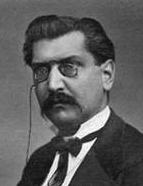

Already among the political elite, Chagas, for over twenty years, was a very active presence in the public space as a liberal conservative. He was deputy first in 1871, for the Covilha constituency, linked to the small political faction of the Constitutional Party of José Dias Ferreira, sponsored by his friend Manuel Vaz Preto (local chief of Beira-Baixa). This faction would ally with the Regenerators and Avilistas in support of a Fontes Pereira de Melo government in 1871. Chagas directed periodicals such as O Diário da Manhã (founded in 1871) and A Discussão (1875, an organisation of that political group, which would later be called Diário da Manhã em 1876). The primacy he gave this political office – he was successively elected deputy in nine legislatures – led him to leave behind his teaching career. However, he held several other prominent public positions, including Peer of the Realm (1892), Chairman of the Board of Public Credit (1893), Secretary of the Academy of Sciences, President of the Association of Men of Letters and Journalists and a member of the Lisbon Superior Council of Public Education. How, then, should we interpret his interest in applying for teaching positions in the Curso Superior de Letras literature program several times? Undoubtedly for the symbolic capital it entailed. His career is indicative: his literary debut as a poet, playwright and journalist followed up his debut as a deputy, and then his promotion to Minister and Peer of the Realm. The relevance of rhetoric and skills of the literati in general in the promotion of policy were, in fact, well noted at the time by Eça de Queiroz and Oliveira Martins.
Eça de Queiroz, in the well-known portrayal of him written in 1880, saw Chagas as a traditionalist brigadier from the time of D. Maria I, a long-time friend of Pina Manique (a brigadier was a commissioned officer). In a dispute waged in 1880 in relation to a reference made by the novelist, he considered the Portuguese Empire of the East "one of the ugliest monuments of ignominy of all ages" (based on História de Portugal by Oliveira Martins), to which Chagas countered with a pertinent comparison with the practices of other colonizers, the Dutch and the English. Eça was not mistaken in a prophecy he made about Pinheiro Chagas: he would soon be promoted in politics. However, the latter's reply was unexpected. He started by praising his critic – "How admirable is his talent and prodigious is his imagination!" – only to then counter that, in História de Portugal (History of Portugal), Chagas himself had referred broadly to the "vileness" practiced by the Portuguese in the East: the violence and cruelties carried out by governors of the Moluccas, by Vasco da Gama and Afonso de Albuquerque. Eça had not read the work of his opponent. Moreover, he had no sense of historical criticism because he ignored, in his view, that men were only understood in the context of the civilization and the criteria of the time in which they live (Letter to Eça de Queiroz 4 -1-1881, Polémica Eça de Queiroz-Pinheiro Chagas, pp.72-74). Pinheiro Chagas denied the anachronism.
